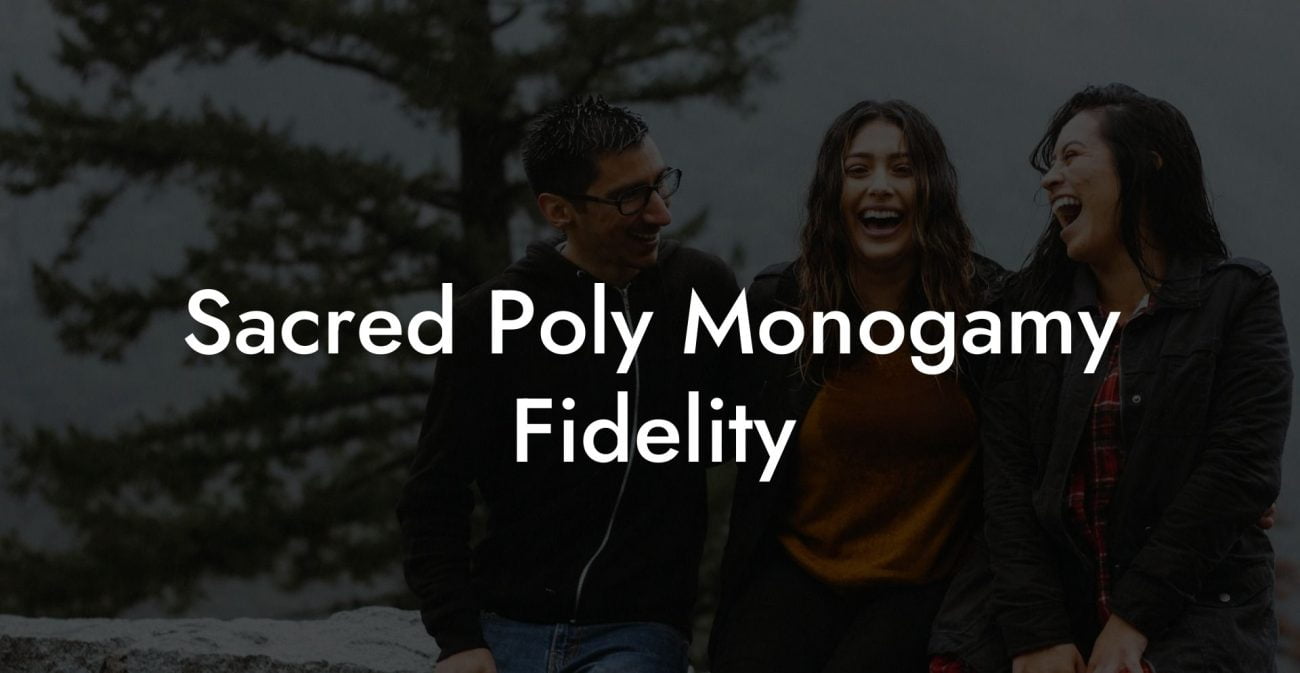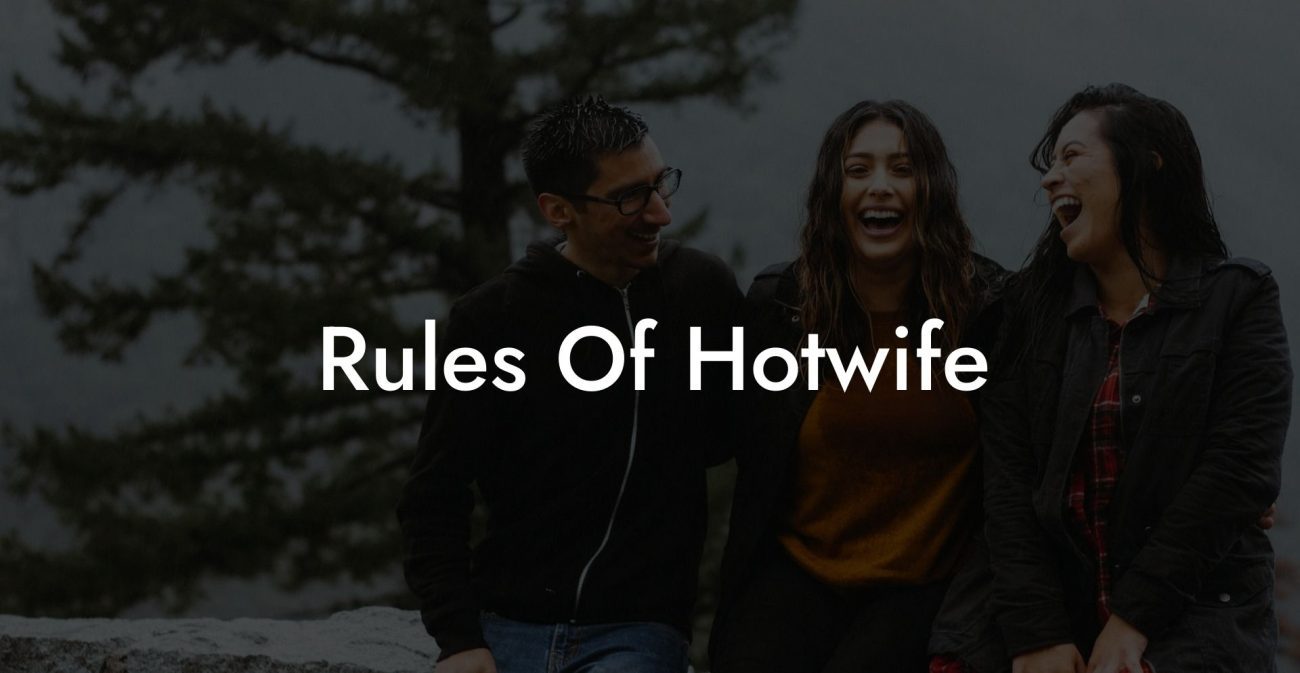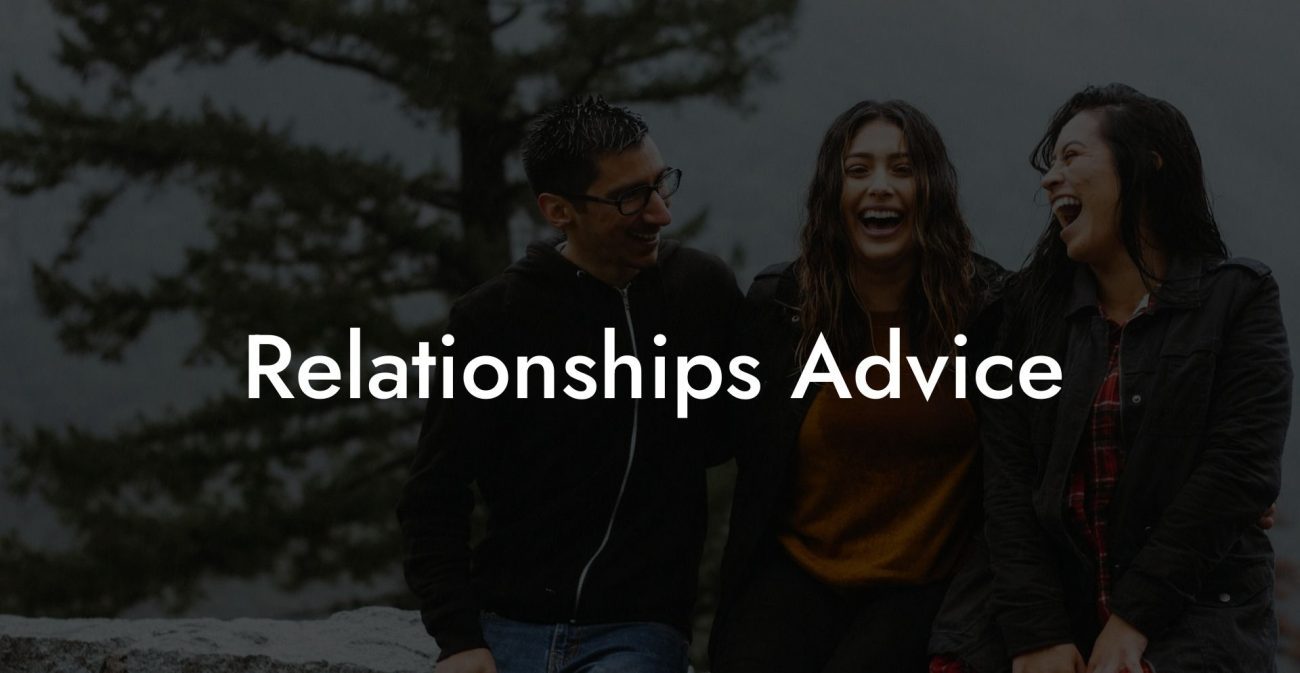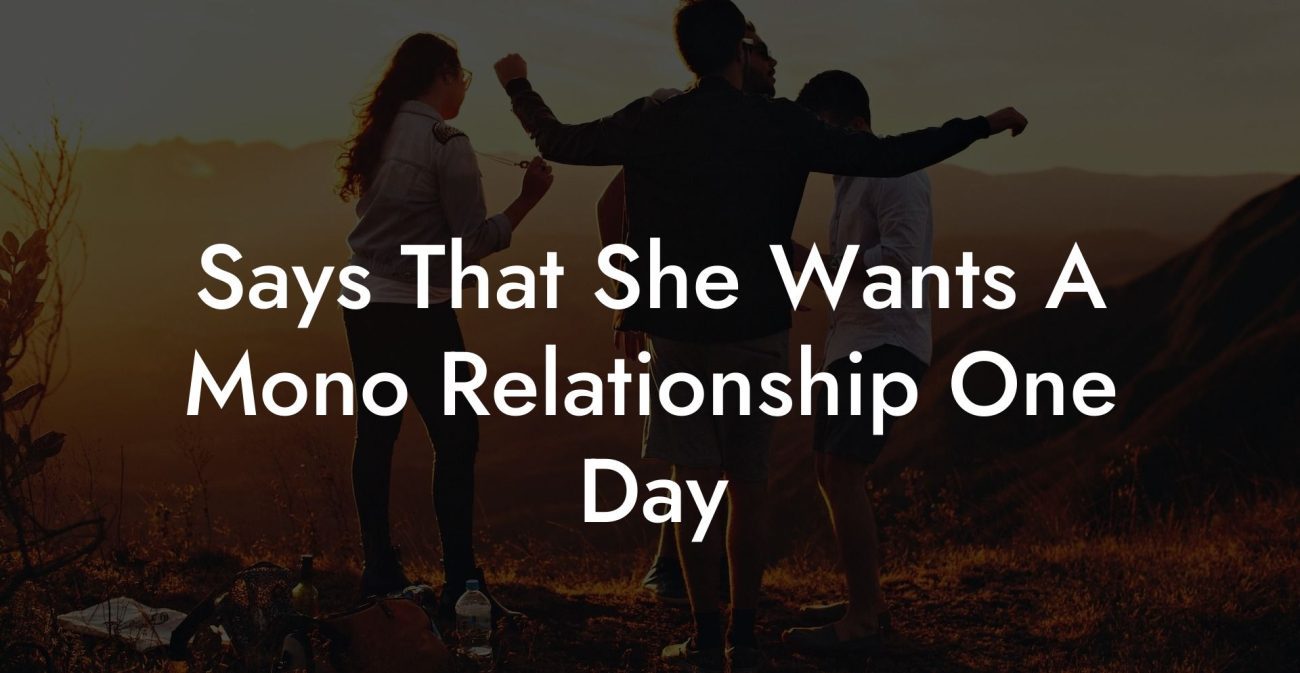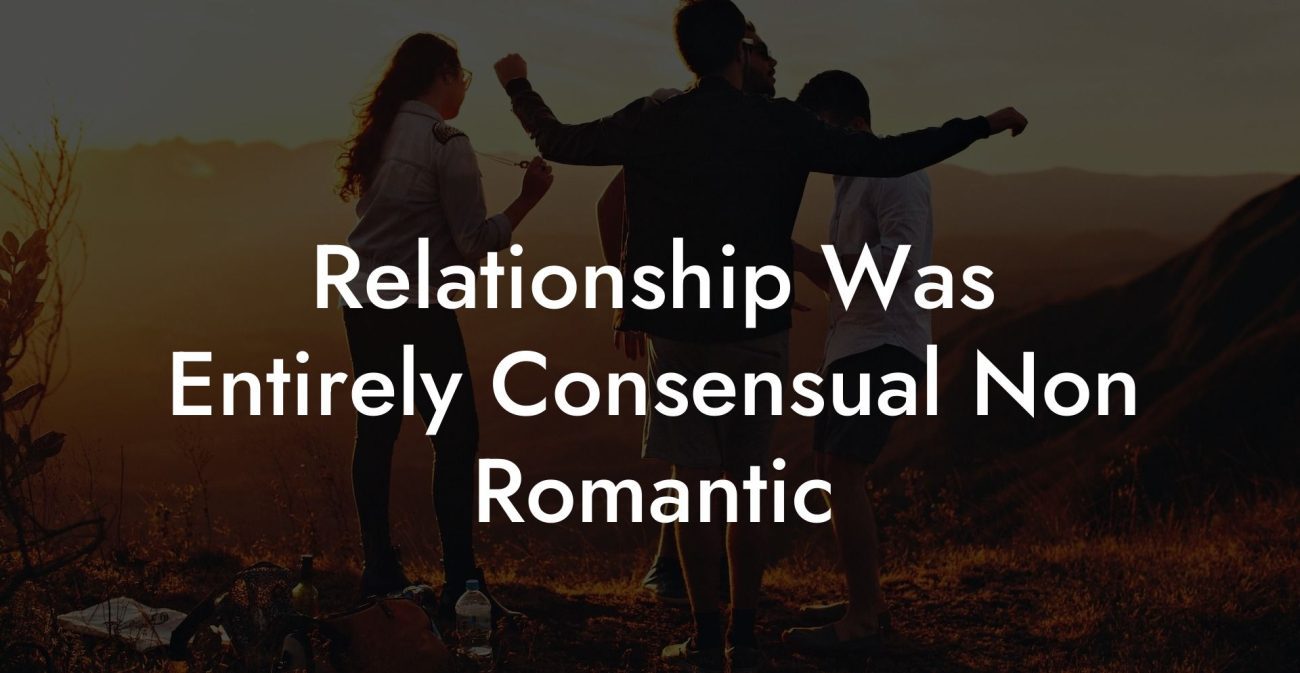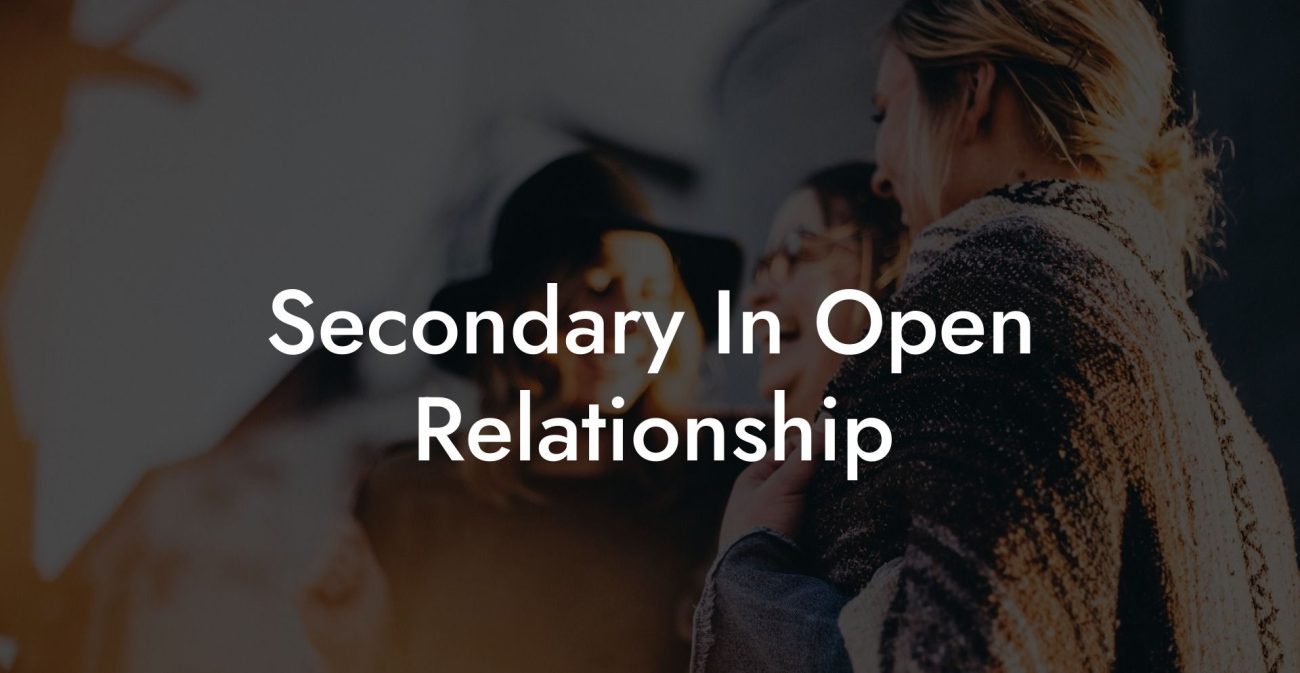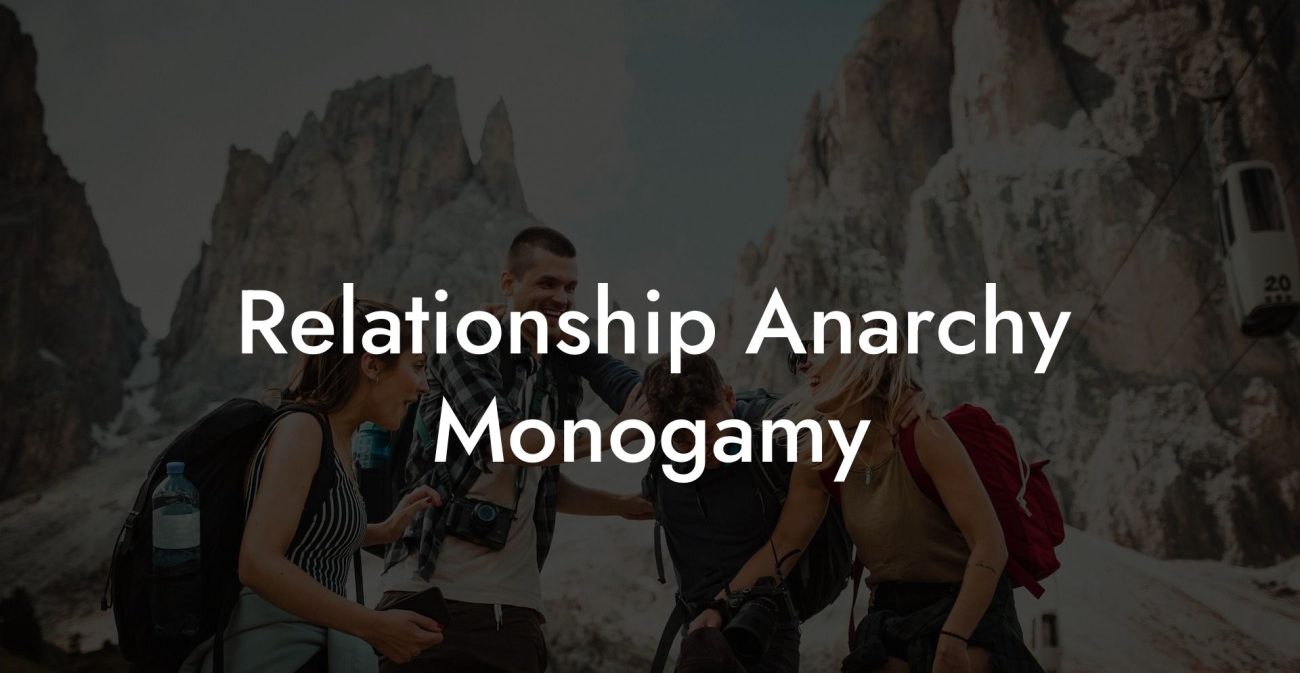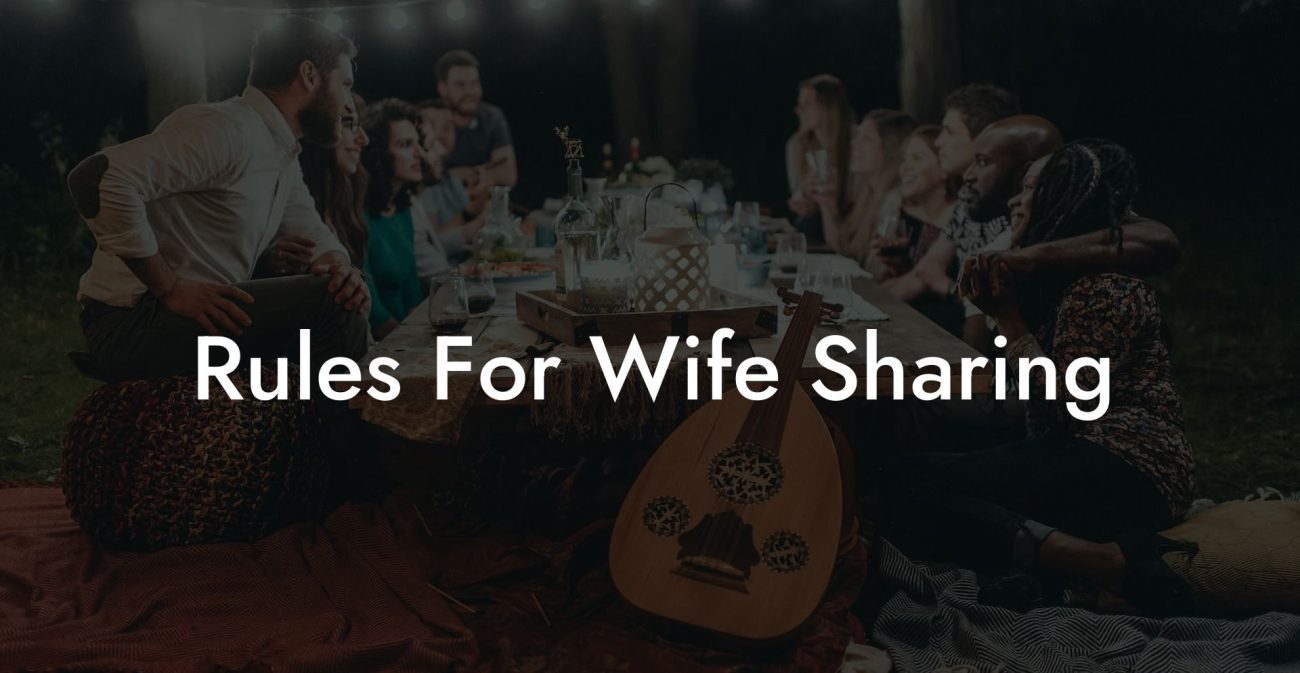The world of relationships is vast and unique—a spectrum of dynamics, love languages, and boundaries. One such relationship format is polyamory, where individuals openly share romantic and sexual connections with multiple partners. But what is the opposite of polyamorous? Discover the various alternatives to polyamory and the contrasting relationship styles in which people commit.
Opposite Of Polyamorous Table of Contents
The Classic Monogamy
When considering the opposite of polyamory, monogamy is often the first term that comes to mind. Monogamy involves two people engaging in a committed romantic and sexual relationship exclusively with one another. This type of partnership is often seen as traditional and the standard for many cultures. However, some people find that monogamy's exclusivity provides security, trust, and emotional depth that they crave.
Serial Monogamy
Another alternative to polyamory is serial monogamy. This relationship style involves individuals having one partner at a time, but over their lifetime, they will have multiple partners. These relationships may end due to breakups, divorce, or the death of a partner. Serial monogamists often value long-term commitment without the complexity of juggling multiple partnerships.
Relationship Anarchy
Relationship anarchy is an interesting and lesser-known alternative to both polyamory and traditional monogamy. This philosophy emphasizes individual autonomy and rejects the idea of strict rules and hierarchies in relationships. People who practice relationship anarchy view all relationships, whether romantic, sexual, platonic, or familial, as equal in importance. While polyamory also fosters open communication and negotiation, relationship anarchists focus more on valuing personal freedom and organic connections.
Key Principles of Relationship Anarchy:
- Autonomy and self-determination
- Emphasizing consent and negotiation
- Valuing relationships equally, regardless of their nature
- Rejecting predefined rules and expectations
Asexual Relationships
Asexuality is a sexual orientation where individuals may lack sexual attraction to others or have minimal interest in sexual activities. While asexual people can still experience romantic attraction and connections, their relationships can be considered an alternative to both polyamory and monogamy. In asexual relationships, the focus is often on deep emotional bonds and companionship rather than sexual desires and connections.
Swinging and Open Relationships
While technically under the umbrella of non-monogamy, swinging and open relationships can provide a different experience from polyamory. Swinging involves committed couples engaging in recreational sexual activities with other people outside of their primary relationship, often at parties or clubs designed for this purpose. Open relationships, on the other hand, allow individuals to explore sexual connections without forming emotional or romantic bonds with their additional partners. These relationship styles cater to those who enjoy sexual variety without the emotional complexity that polyamory may entail.
Opposite Of Polyamorous Example:
Alex and Sam are in a committed monogamous relationship. They value the trust and emotional depth that comes with sharing their lives exclusively with one another. Their friends, Kelly and Jamie, are in an open relationship, allowing them to explore sexual connections outside of their primary partnership. Both couples are comfortable with their respective relationship styles and find them fulfilling.
On the other hand, Taylor practices relationship anarchy and believes in valuing every connection. As a result, their boundaries are fluid, and they maintain an open and honest dialogue with their friends and partners to negotiate expectations and needs.
In our quest for love, understanding, and connection, it's essential to discover the relationship styles that resonate with us. If polyamory isn't quite for you, there are many alternatives—from monogamy and serial monogamy to asexual relationships and relationship anarchy. By being open to exploring the spectrum of relational dynamics, you'll be able to find the one that brings you the most fulfillment and joy. Join the conversation with The Monogamy Experiment and get insights on various relationship formats. Share your experiences and thoughts, and connect with others navigating the vast world of love and connection.



